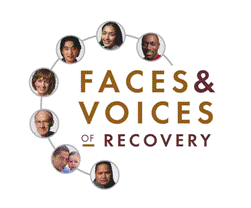Recovery Bill of Rights
 |
Recovery Bill of RightsWe will improve the lives of millions of Americans, their families and communities if we treat addiction to alcohol and other drugs as a public health crisis. To overcome this crisis, we must accord dignity to people with addiction and recognize that there is no one path to recovery. Individuals who are striving to be responsible citizens can recover on their own or with the help of others. Effective aid can be rendered by mutual support groups or health care professionals. Recovery can begin in a doctor’s office, treatment center, church, prison, peer support meeting or in one’s own home. The journey can be guided by religious faith, spiritual experience or secular teachings. Recovery happens every day across our country and there are effective solutions for people still struggling. Whatever the pathway, the journey will be far easier to travel if people seeking recovery are afforded respect for their basic rights: |
1. We have the right to be viewed as capable of changing, growing and becoming positively connected to our community, no matter what we did in the past because of our addiction.
2. We have the right—as do our families and friends—to know about the many pathways to recovery, the nature of addiction and the barriers to long-term recovery, all conveyed in ways that we can understand.
3. We have the right, whether seeking recovery in the community, a physician’s office, treatment center or while incarcerated, to set our own recoverygoals, working with a personalized recovery plan that we have designed based on accurate and understandable information about our health status, including a comprehensive, holistic assessment.
4. We have the right to select services that build on our strengths, armed with full information about the experience, and credentials of the people providing services and the effectiveness of the services and programs from which we are seeking help.
5. We have the right to be served by organizations or health care and social service providers that view recovery positively, meet the highest public health and safety standards, provide rapid access to services, treat us respectfully, understand that our motivation is related to successfully accessing our strengths and will work with us and our families to find a pathway to recovery.
6. We have the right to be considered as more than a statistic, stereotype, risk score, diagnosis, label or pathology unit—free from the social stigma that characterizes us as weak or morally flawed. If we relapse and begin treatment again, we should be treated with dignity and respect that welcomes our continued effort to achieve long-term recovery
7. We have the right to a health care and social services system that recognizes the strengths and needs of people with addiction and coordinates its efforts to provide recovery-based care that honors and respects our cultural beliefs. This support may include introduction to religious, spiritual and secular communities of recovery, and the involvement of our families, kinship networks and indigenous healers as part of our treatment experience.
8. We have the right to be represented by informed policymakers who remove barriers to educational, housing and employment opportunities once we are no longer misusing alcohol or other drugs and are on the road to recovery.
9. We have the right to respectful, nondiscriminatory care from doctors and other health care providers and to receive services on the same basis as people do for any other chronic illness, with the same provisions, copayments, lifetime benefits and catastrophic coverage in insurance, self-funded/self-insured health plans, Medicare and HMO plans. The criteria of “proper” care should be exclusively between our health care providers and ourselves; it should reflect the severity, complexity and duration of our illness and provide a reasonable opportunity for recovery maintenance.
10.We have the right to treatment and recovery support in the criminal justice system and to regain our place and rights in society once we have served our sentences.
11.We have the right to speak out publicly about our recovery to let others know that long-term recovery from addiction is a reality.








